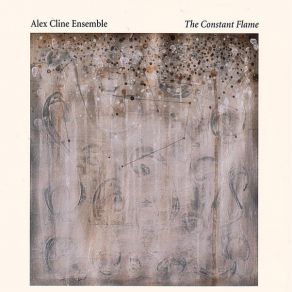The Constant Flame
Download links and information about The Constant Flame by Alex Cline Ensemble. This album was released in 2001 and it belongs to Jazz, Avant Garde Jazz genres. It contains 8 tracks with total duration of 01:12:27 minutes.

|
|
|---|---|
| Artist: | Alex Cline Ensemble |
| Release date: | 2001 |
| Genre: | Jazz, Avant Garde Jazz |
| Tracks: | 8 |
| Duration: | 01:12:27 |
| Buy it NOW at: | |
| Buy on iTunes $7.99 | |
Tracks
[Edit]| No. | Title | Length |
|---|---|---|
| 1. | Paramita (To The Memory Of Don Cherry) | 6:34 |
| 2. | Evening Bell (To The Memory Of Toru Takemitsu) | 12:37 |
| 3. | The Constant Flame (To The Memory Of John Carter) | 12:03 |
| 4. | A Wreath Of Rain (To The Memory Of Krzysztof Kieslowski) | 12:09 |
| 5. | Bridge (For David Sylvian) | 13:13 |
| 6. | Summoning Spirits (For Will Salmon) | 2:43 |
| 7. | Six Poems By Akiko Yosano (To Her Memory) | 9:05 |
| 8. | Benediction (For Aina) | 4:03 |
Details
[Edit]Constant Flame is the Alex Cline Ensemble's first endeavor since 1999's Sparks Fly Upward, and it is a poetic masterpiece. Back is the haunted, hunted, stoned, angelic voice of Aina Kemanis, with violins provided by Jeff Gauthier; Michael Elizondo's bass; G.E. Stinson's guitar; and Wayne Peet's keyboards to accompany the massive percussion, synthesizer, and string skills of Alex Cline, who also plays kantale and autoharp. Lending a hand are Cline's brother, guitarist Nels Cline; soprano saxophonist Vinny Golia; a percussion ensemble headed by producer Peter Erskine; and a host of relatives and friends of bandmembers reading six poems by the late Akiko Yosano. The opener, "Paramita," is dedicated to the memory of the late Don Cherry. After a brief poem read by Kemanis, the piece opens with a deep, thunderous drumming. Eventually, her ghostly yet serene voice is joined by keyboards, bass, and kantele (a kind of zither), which enter the tune and become its body. Kemanis' vocals hover above ever so slightly, bringing her musicians with her into the heavens ever so slowly, until the entire tune is transformed from a piece of musical poetry into a prayer. On "Evening Bell," dedicated to the late composer Toru Takemitsu, singing bowls usher in bells and resonant strings (which Gauthier overdubbed) and, very eventually, Kemanis' vocals. The work holds together with a spiritual thread; nothing more binds its disparate parts. Improvisation is everywhere, yet reigned in with an aesthetic control of space. One of the standout tracks is the title cut dedicated to the memory of John Carter, whom Cline cut his musical teeth with. Not remotely resembling anything Carter ever composed, the piece nonetheless employs his compositional methodology and uses space for improvisation in much the same way. While there isn't a weak moment on this outrageously ambitious recording, worthy of an essay instead of a review, there are some moments that need to be mentioned if for no other reason than to point listeners in a general direction. "Bridge," for David Sylvian, begins with a gorgeous vocal from Kemanis singing the simplest of lyrics and accompanied only by a keyboard for half of the piece's 13 minutes. As her vocals open the musical field, percussion, other keyboards, strings, and reeds join together with her and shimmer in the dark heat. By disc's end, it's obvious that Cline and his band can accomplish anything they want to; there is no chasm they cannot breach. In the spare, night-drenched sparseness that is "Benediction" (written for and sung by Kemanis), the keyboards and whispering cymbals offer a closing to a set of music that is both sacred and yet entrenched in the ravaged beauty of the earth. Cline's music is boundless and cannot be more or less than any of the sounds that he and his band evoke in their search for musical wholeness. As brave and uncompromising as it is inherently beautiful, this is Cline's finest moment as a leader thus far.